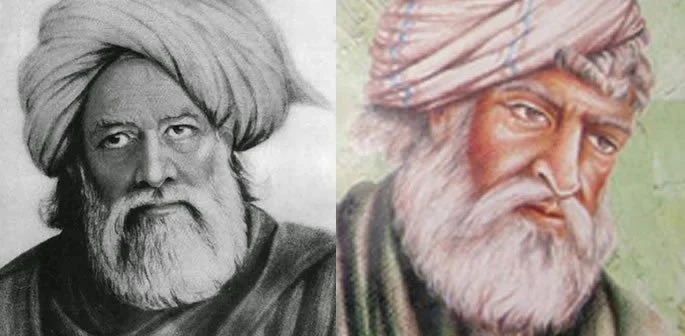 Image Source : DESIblitz
Image Source : DESIblitz
Centuries after his death, Baba Bulleh Shah’s verses continue to echo through cinema halls, concert stages, and spiritual gatherings. From the haunting strains of Bulleya in Ae Dil Hai Mushkil to the rhythmic pulse of Chaiyya Chaiyya in Dil Se and the soulful Ranjha Ranjha in Raavan, the 17th-century Punjabi Sufi poet remains a lyrical force in contemporary India. His poetry, rooted in divine love and social rebellion, has transcended time, caste, and creed—making him one of South Asia’s most enduring cultural icons.
Early Life And Spiritual Awakening
-
Born Sayyid Abdullah Shah Qadri around 1680 in Uch, in present-day Pakistan, Bulleh Shah hailed from a family of religious scholars
-
He received early education in Arabic and Persian before moving to Lahore, where he met Shah Inayat Qadri, a Sufi saint and gardener by profession
-
Choosing Shah Inayat as his spiritual guide was controversial, as Inayat belonged to a lower caste. Bulleh Shah defied societal norms, embracing spiritual equality over social hierarchy
-
This relationship became central to his life and poetry, symbolizing surrender, devotion, and the dissolution of ego
The Legend Of His Dance For His Master
-
A defining moment in Bulleh Shah’s life came when he was estranged from Shah Inayat due to family pressure and caste prejudice
-
Desperate to reunite with his master, Bulleh Shah is said to have danced publicly in front of Inayat’s house, singing Tere Ishq Nachaya, Karke Thaiya Thaiya
-
The act of dancing—a gesture often frowned upon in orthodox circles—became a metaphor for spiritual ecstasy and defiance
-
His verses from that moment, filled with longing and surrender, remain among the most quoted in Sufi literature and have inspired countless musical renditions
Philosophy And Poetic Legacy
-
Bulleh Shah’s poetry is written in Punjabi and structured in the form of kafis—short, lyrical poems that explore themes of divine love, humanism, and inner awakening
-
He rejected religious orthodoxy, critiqued institutional power, and emphasized personal experience of the divine over ritualistic practice
-
His verses often blur the lines between lover and beloved, God and seeker, reflecting the Sufi belief in unity and transcendence
-
He is revered not only in spiritual circles but also in literary and cultural domains for democratizing mysticism through accessible language
Bollywood’s Musical Tribute
-
Chaiyya Chaiyya, composed by A R Rahman and sung by Sukhwinder Singh, draws from Bulleh Shah’s imagery of divine love as a journey
-
Bulleya, reimagined by Amit Trivedi and sung by Amit Mishra, captures the poet’s existential questioning and spiritual rebellion
-
Ranjha Ranjha, with lyrics adapted from his verses, portrays the merging of human love and divine longing
-
These songs have introduced Bulleh Shah’s philosophy to new generations, often without listeners realizing the depth behind the lyrics
Cultural Impact And Continued Relevance
-
Bulleh Shah’s shrine in Kasur remains a site of pilgrimage, where devotees gather to sing his kafis and celebrate his legacy
-
His poetry has been performed by legends like Nusrat Fateh Ali Khan, Abida Parveen, and Rabbi Shergill, each adding their own interpretation to his timeless words
-
UNESCO has recognized his contribution to Punjabi literature, and his verses are taught in academic institutions across South Asia
Conclusion
Baba Bulleh Shah was more than a poet—he was a spiritual revolutionary who danced his way into the hearts of seekers and skeptics alike. His fearless devotion, lyrical genius, and rejection of societal constraints continue to inspire artists, thinkers, and mystics. Whether in a Sufi dargah or a Bollywood soundtrack, his voice remains unmistakable: a call to love, to rebel, and to transcend.
Sources: Times Now, Wikipedia, TheSufi.com.
Advertisement
Advertisement







